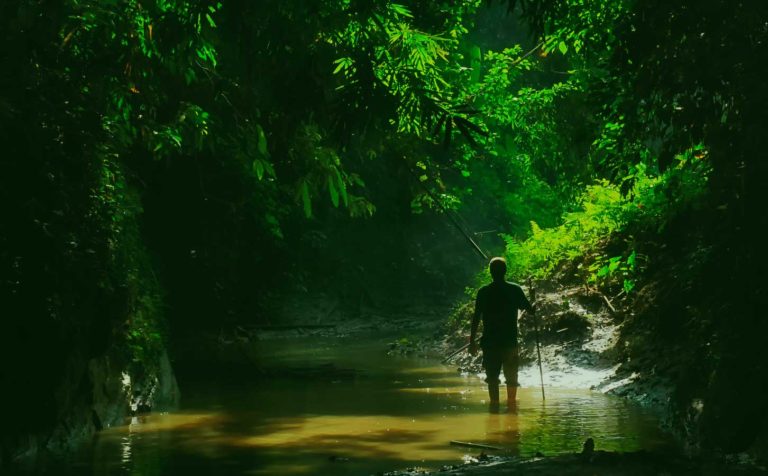Sreemangal is known as the capital of tea having more than 38 tea gardens of various sizes. With tea being a basic segment of Bengali diet, it is extremely interesting to find its source and see how locals view it. The tea that the tea garden workers make is very different from what we have. It is fresh and instead of sugar, they add salt to taste. They also make a sort of chutney from the freshly picked tea leaves. There is a museum and Research Institute that visitors love to visit. As for me, I just enjoyed walking miles along the trails in between the bushes of tea plants.
How to get there
Visiting Sreemangal is cheaper by train but a bus journey takes you straight to the town in a shorter time and costs more than double, around five hundred taka per person. The town is small and semi-rural, although it has shopping malls and large food joints like Panshee, the large tea gardens adjacent to the quaint little town pertains its country feels. But do not forget to have at least a single meal at Panshee. It caters with bounty but charges reasonably.
An 8-kilometer journey takes us to Lawachara. The usual transportations are CNG and auto rickshaws that charge a maximum of 30 tk per person, but we took an unexpected ride – trucks. It is a sort of hitchhiking that the locals are accustomed to, paying a small amount in return. The roads are made of the tea gardens, woven with unexpected curves and turns, which give you a thrilling adventure for a journey.
Sights to look out
The sole rain forest of the country appeals to us even more during the rain with its plush greenery. The tall deciduous trees create a natural umbrella and as we enter into its depth sunlight slowly ceases and there is that thick, humid silence. The forest is apparently manmade with history signifying the plantation by the British government. The very trees have grown into this magnanimous forest which is home to a variety of wildlife. Deeper into the forest resides the endangered species of hoolock gibbons. One can find deer, bears, jackals, leopards, and elephants too on good days. The forest also accommodates more than 246 species of birds, 6 different species of snakes, wild dogs, chimps, owls, eagles, etc. It is essential that we remember to not harm the animals or their natural habitats, litter the forest or ruin its sanctity in any way.
From the forest, we move on to the animals in captivity, in the zoo of SiteshBabu situated in Bharaura that any local will be able to guide you to. The renowned hunter of the past SiteshBabu is currently the zookeeper. The zoo was initially started by his father back in 1972. It holds different types of tigers, bears, deer, porcupine, tortoise and wild rabbits and a wide variety of birds. The zookeeper condemns his past and advises hunters to give up too. He has dedicated his life to saving the endangered species of rare, exotic animals. A ten-kilometer journey takes us to Madhabpur Lake. Authorities build such lakes in the tea gardens in order to supply the water necessary for the tea plantation. The lake, about 3 kilometers long, is famous for the bluish tinged water lilies it hoards in all seasons.
Sreemangal offers a wide range of places to stay in the Sreemangal Guesthouse or the Lemon Garden Resort and much more. The website of Jovago makes hotel booking as easy as only a click away.
About Jovago
Jovago is Bangladesh`s leading online platform for hotel booking.It`s an initiative of Rocket Internet AIG. Jovago has listings of more than 80,000 hotels in Asia and 225,000 hotels around the world. Jovago aims to bring the most convenient accommodation facilities online to create the easiest and cheapest way for its customers to book and enjoy hassle free travel. To know more please visit www.jovago.com

